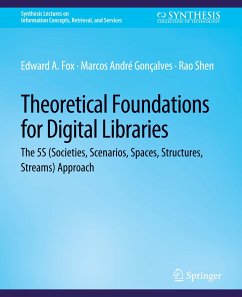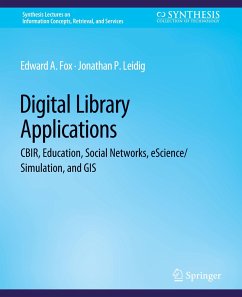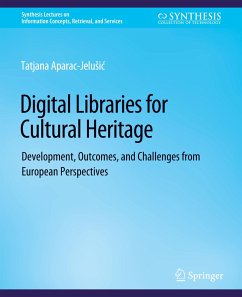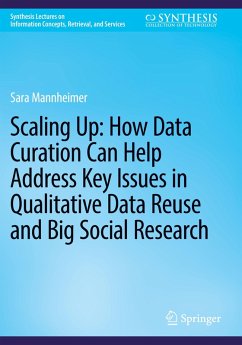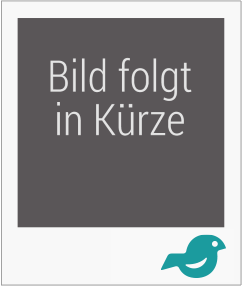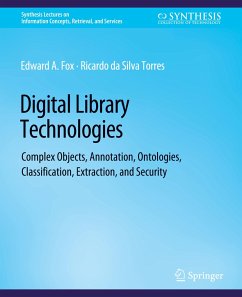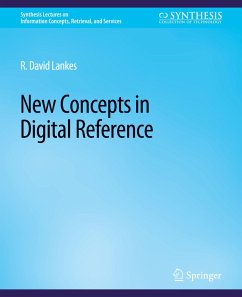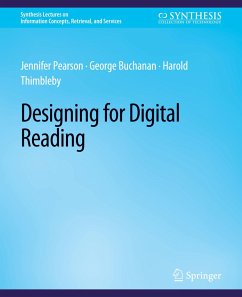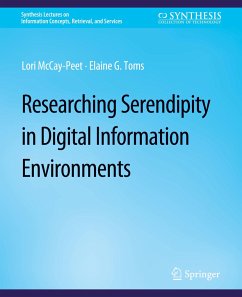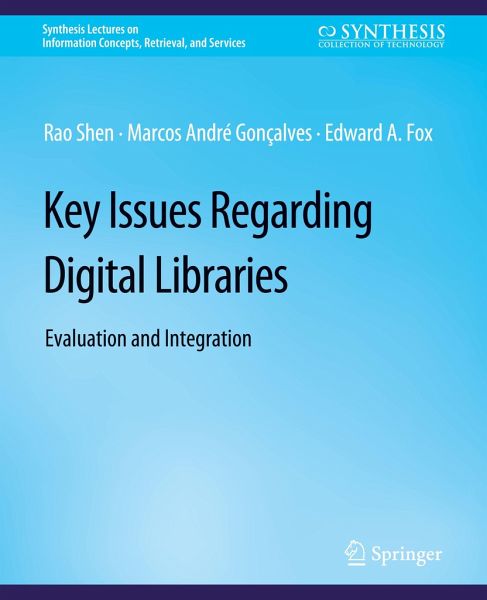
Key Issues Regarding Digital Libraries
Evaluation and Integration

PAYBACK Punkte
0 °P sammeln!
This is the second book based on the 5S (Societies, Scenarios, Spaces, Structures, Streams) approach to digital libraries (DLs). Leveraging the first volume, on Theoretical Foundations, we focus on the key issues of evaluation and integration. These cross-cutting issues serve as a bridge for those interested in DLs, connecting the introduction and formal discussion in the first book, with the coverage of key technologies in the third book, and of illustrative applications in the fourth book. These two topics have central importance in the DL field, allowing it to be treated scientifically as w...
This is the second book based on the 5S (Societies, Scenarios, Spaces, Structures, Streams) approach to digital libraries (DLs). Leveraging the first volume, on Theoretical Foundations, we focus on the key issues of evaluation and integration. These cross-cutting issues serve as a bridge for those interested in DLs, connecting the introduction and formal discussion in the first book, with the coverage of key technologies in the third book, and of illustrative applications in the fourth book. These two topics have central importance in the DL field, allowing it to be treated scientifically as well as practically. In the scholarly world, we only really understand something if we know how to measure and evaluate it. In the Internet era of distributed information systems, we only can be practical at scale if we integrate across both systems and their associated content. Evaluation of DLs must take place atmultiple levels,so we can address the different entities and their associated measures. Thus, for digital objects, we assess accessibility, pertinence, preservability, relevance, significance, similarity, and timeliness. Other measures are specific to higher-level constructs like metadata, collections, catalogs, repositories, and services.We tie these together through a case study of the 5SQual tool, which we designed and implemented to perform an automatic quantitative evaluation of DLs. Thus, across the Information Life Cycle, we describe metrics and software useful to assess the quality of DLs, and demonstrate utility with regard to representative application areas: archaeology and education. Though integration has been a challenge since the earliest work on DLs, we provide the first comprehensive 5S-based formal description of the DL integration problem, cast in the context of related work. Since archaeology is a fundamentally distributed enterprise, we describe ETANADL, for integrating Near Eastern Archeology sites and information. Thus, we show how 5S-based modeling can lead to integrated services and content. While the first book adopts a minimalist and formal approach to DLs, and provides a systematic and functional method to design and implement DL exploring services, here we broaden to practical DLs with richer metamodels, demonstrating the power of 5S for integration and evaluation.



